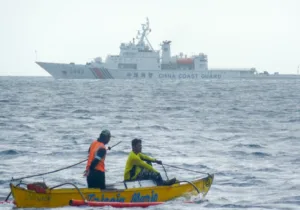Joshua Walker, who was the global head of strategic initiatives at Eurasia Group and is now president of the Japan Society, spoke about geopolitics and US grand strategy in the G-Zero world at Providence’s Christianity and National Security Conference in November 2019.
Geopolitics of US Grand Strategy in the G Zero World

Providence is the only publication devoted to Christian Realism in American foreign policy and is entirely funded by donor contributions. There are no advertisements, sponsorships, or paid posts to support the work of Providence, just readers who generously partner with Providence to keep our magazine running. If you would care to make a donation it would be highly appreciated to help Providence in advancing the Christian realist perspective in 2024. Thank you!
Events & Weekly Newsletter Sign-up
Receive the weekly email for all the latest content.





 Sponsor a student for Christianity & National Security 2024
Sponsor a student for Christianity & National Security 2024